COMMITMENT, PASSION, AND SERVICE: Young Alumni Inspired for Change
Today’s youth are tapping into their passion and voice for change across a wide range of social issues, and American University Washington College of Law’s recent graduates are fully engaged in this wave to make a difference.
AUWCL draws and nurtures individuals who view their training as a tool both for doing well and for doing good. Young alumni are active in myriad fields and work in vastly different environments, but many share a drive to use their legal expertise to effect real and lasting change, whether it be locally, nationally, or internationally.
One AUWCL graduate is employed by the Internal Revenue Service but works exclusively with tax-exempt and nonprofit organizations. In this role, she has found a way to marry her intellectual prowess in tax law with her personal passion for public interest, says Professor Michael Carroll, director of the Program on Information Justice and Intellectual Property and chair of the law school’s new Alumni Advancement Committee. Carroll has witnessed this phenomenon among many alumni.
“We attract students with a wide range of ambitions, from those who want to be commercial lawyers to those who want to make a difference through social justice or community service—and they are not mutually exclusive,” he says. “No matter where or how our alumni practice, they tend to be community-minded.”
Pursuing Criminal Justice
When asked what qualities a successful prosecutor must embody, Ryan Norman ’12 tops his list with one that might surprise people: empathy.
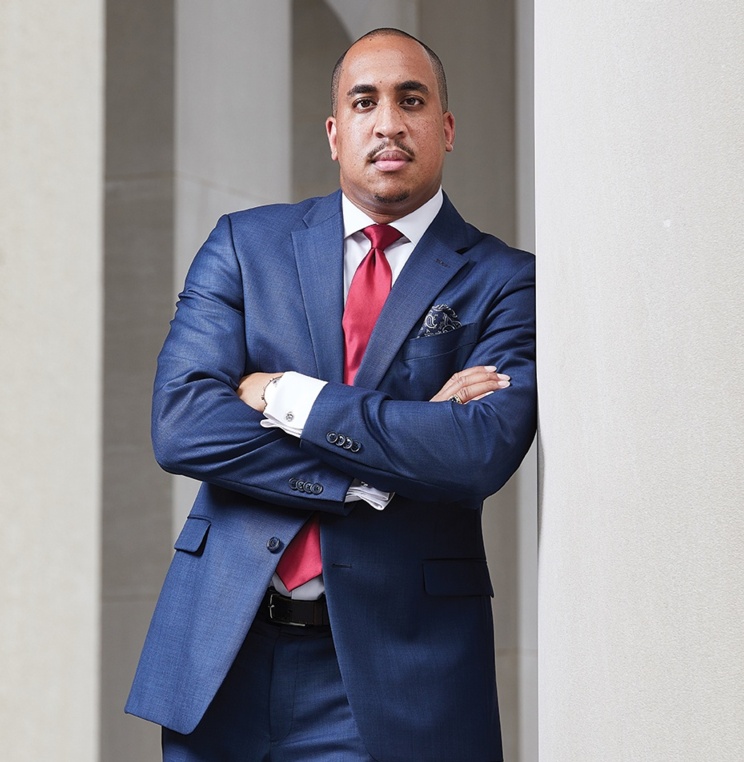
A prosecutor in the U.S. Attorney’s Office for the District of Columbia, Norman believes justice and mercy can overlap and that, in many cases, a fair sentence is designed to rehabilitate, not simply to punish.
“Our job is not to just rack up convictions and put notches in our belts,” says Norman, who primarily tries local cases involving firearm and drug offenses. “Sometimes that means looking at a defendant’s history and determining whether to give them a second chance and recommend drug or mental health treatment. You need to actually think about defendants as people.”
As willing as he is to take defendants’ pasts and futures into consideration, Norman remains committed to bringing justice to crime victims.
“I do what I do because it is a public service. My actions help protect the community, and I help victims of crimes who don’t have anywhere else to turn,” he says. “When I get a judge and jury to think my way, it is rewarding to let a victim know that the person who harmed them will be held responsible for their actions.”
Norman has long enjoyed debating and felt a pull toward law school throughout his youth. While visiting his childhood home in Detroit last Christmas, he found a scrapbook from fifth grade in which he declared he would become a lawyer. Similarly, the caption under his senior yearbook portrait reads “criminal prosecutor.”
He fulfilled his dream right after passing the bar when he joined the Manhattan District Attorney’s Office, staying for nearly four years before returning to Washington for his current position in 2016.
When his very first trial—for possession of a crack pipe—ended in a conviction, Norman relished in the confirmation that he could succeed in the career he’d envisioned for himself for so long. His ultimate goal is to become a homicide prosecutor, but no matter what happens, he says, “I don’t see myself ever leaving the prosecuting world.”
Striving for Bi Inclusion
Bisexuality does not exist. Everyone’s a little bit bi. Bisexual people are promiscuous, confused, and disturbed.
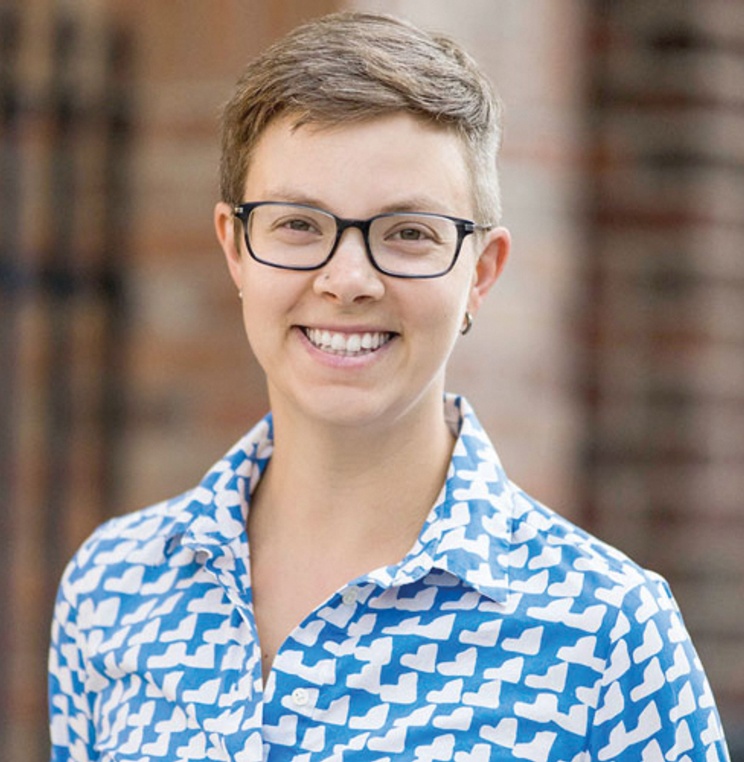
Heron Greenesmith ’10 knows commonly held beliefs like these are as harmful as they are ubiquitous, leading to widespread discrimination against bisexual people—by both their straight and gay peers.
“Research shows that if you see things in black and white, you’re more likely to express biphobia. And since so many people are uncomfortable with gray areas, bi folks experience a lot of bias,” says Greenesmith, whose work focuses on supporting the bisexual community through policy advocacy.
Greenesmith, who uses gender-neutral pronouns including “they,” says this bias has created an epidemic of mental health issues and economic insecurity among bisexual people, as well as making them frequent targets for violence. A lack of resources exacerbates these disparities, they note; less than one percent of all funding dedicated to the LGBT community supports bisexual-specific initiatives, and no bisexual advocacy organizations with paying positions exist in the United States.
To counter these challenges, Greenesmith is working to increase their community’s capacity for advocacy at the local, state, and federal levels by traveling around the country to conduct policy trainings and teach bisexual people and groups how to engage lawmakers, comment on proposed regulations, and use academic research to lobby for programs and services. In 2015, Greenesmith co-drafted the first federal regulatory agenda for the bisexual community and helped spearhead its implementation with activities that included urging various government agencies to initiate bi-directed outreach.
Greenesmith says their community’s work at the federal level has become “mostly defensive” since the Trump administration took office, but they remain encouraged by a growing political momentum at the state level.
“No one else is advocating for us, so we need to advocate for ourselves,” they say. “As an attorney who knows how to open doors to many avenues of advocacy, I can give my community the skills and capacity to demand that when positive change happens, it is inclusive of bisexual people.”
Fighting for Immigrant Families
Two years ago, if someone had told Madhuri Grewal ’10, that the U.S. government would forcibly separate migrant children from their families at the border to discourage immigrants from unlawfully entering the country, she wouldn’t have believed them.
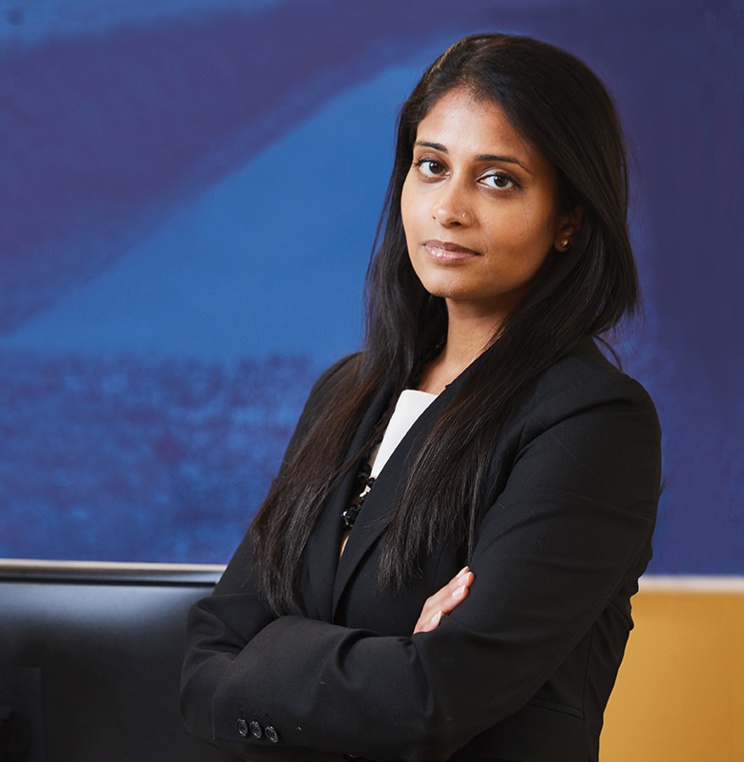
“This practice was a moral crisis. Children were literally being ripped from their parents’ arms,” she says.
As federal immigration policy counsel for the American Civil Liberties Union (ACLU), Grewal pushed senators and congressional representatives to publicly denounce family separation, an effort that became an “all-hands-on-deck situation” consuming her organization’s entire team of attorneys, organizers, and advocacy professionals. She also tracks and issues vote recommendations on federal legislation and builds strategies to increase immigrants’ rights.
Grewal has devoted her career to exploring the intersection of immigration and criminal justice, a path she says was partially inspired by her experiences in AUWCL’s “incredible” Immigrant Justice Clinic. She has held a variety of positions, including clerking at an immigration court in San Diego on the U.S./Mexico border and working as policy counsel with the Detention Watch Network, which seeks to end immigration detention, and the Constitution Project, a think tank where she focused on criminal justice reform. She joined the ACLU in January 2018.
As infuriated as she has been by the current administration’s treatment of immigrants, Grewal remains heartened by the American public’s engagement with the movement to end family separation.
“This issue has steered the immigration narrative in a way I’ve never seen before. When you have groups that are not typically politically active, like pediatricians, who are so outraged about this practice that they’re being really outspoken and writing op-eds and letters to Congress, that says something,” she says. “Family separation stories made headlines in a way other policies haven’t, and we have to take advantage of this opportunity and keep momentum going.”
Backing Climate-Safe Energy Solutions
On Jan. 20, 2017, Melanie Nakagawa ’05 was out of a job.
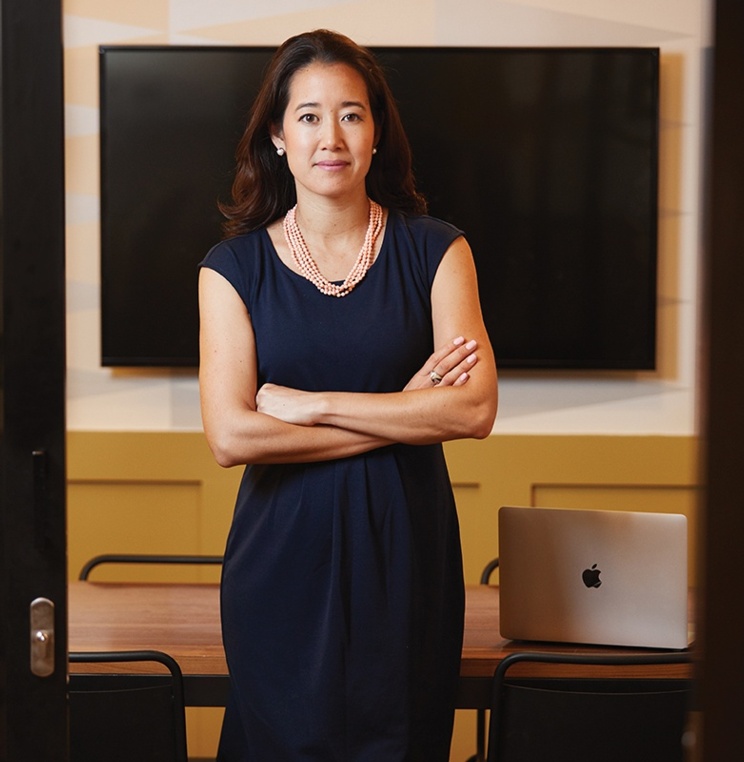
After eight years working in the public sector—including stints as senior energy and environment counsel for the U.S. Senate Foreign Relations Committee, energy and climate advisor to Secretary of State John Kerry, and deputy assistant secretary for energy transformation in the U.S. State Department—Nakagawa faced a transition as the inauguration of President Donald Trump ensured the termination of her government role.
Nakagawa, who coupled her JD with a master’s degree in international affairs from AU’s School of International Service, used her expertise in renewable and low-carbon energy policies to score two new roles: one focusing on the geopolitics of renewable energy as a non-resident fellow at Columbia University’s Center on Global Energy Policy, and her primary position as Head of Climate Initiative for technology investment firm Princeville Global, where she identifies groundbreaking climate technologies that are poised to grow in emerging markets.
“What we’re looking at is not hardware solutions or so-called ‘clean tech,’ but rather the software-layer components to climate solutions,” she explains. “So, for example, instead of investing in manufacturing the next electric vehicle, we’re interested in innovations in how that vehicle’s battery is charged.”
She cites additional examples of promising technologies, including fleet telematics, which provides data to commercial vehicle fleet managers so they can increase driver efficiency, save fuel, and reduce carbon emissions; precision agriculture, in which sensors or drones give farmers data on what parts of their land need more or less water; smart building controls that increase buildings’ energy efficiency and support the growth of low-carbon cities; and various new air purification technologies that can monitor and filter air pollution.
Nakagawa says she is encouraged by the number of private sector business leaders who are acknowledging their roles in both contributing to and delivering solutions to climate change. “Climate change is real, and it’s happening. No matter what administration is in charge, the public sector is not enough for these challenges. It is critical that private capital markets provide investments, technology, and know-how to successfully grow climate-positive companies,” she says.
“Many lawyers craft arguments for a jury. I’m just presenting arguments to a different type of jury to get a broader segment of the private sector excited about supporting transformative solutions to climate change.”
Implementing Juvenile Justice Reform
Twenty hours.
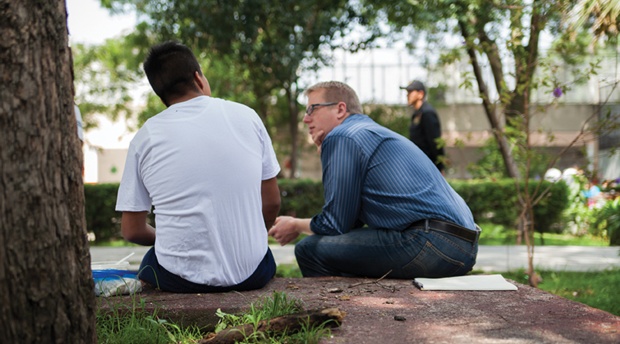
That’s how long many children in juvenile detention centers throughout Mexico languish in their cells or dormitories every day, let out only for meals or the occasional class or activity. Often abused and intimidated by police officers, guards, and fellow inmates, these youths remain detained for months as they await trial—even for minor, nonviolent infractions unlikely to result in a prison sentence. Nearly half of the children whose physical and mental health are deteriorating in custody have yet to be convicted of the crimes for which they were arrested.
Douglas Keillor ’12 began working to reform Mexico’s juvenile justice system six years ago, when he moved to Mexico City as a Fulbright-Garcia Robles Fellow studying the mismanagement of detention for young offenders. His fellowship ended in 2013, but his drive to fix the system did not—so he founded Juvenile Justice Advocates International (JJA), a nonprofit organization that partners with the Mexican government to improve policy and practice.
JJA aims to resolve the systemic problems causing Mexico’s overuse of pretrial detention, to reduce overall detention time, and to monitor the conditions and personnel inside detention centers. Keillor and his team have effected significant change both nationally and within specific jurisdictions, including introducing standards for determining when detention is warranted and reducing the time it takes for prosecutors to process cases.
“We are giving the government tools to make sustainable change a reality,” Keillor says. “For example, when we started our work in Chihuahua State, where we’ve been the longest, the length of pretrial detention on average was about 150 days. It’s now down to 90 days.”
Keillor sees excessive use of detention for children as a global problem and hopes to apply JJA’s strategies elsewhere in the future.
“Our goal is to continue to expand our projects in Mexico, where there are 32 jurisdictions—giving us plenty of work for a long time—and eventually to replicate these projects, first in other parts of Latin America then in other parts of the world.”
Lawyering for Good
Whether they’re working to give underserved groups a voice, to enforce laws, or to reform laws that are unjust, AUWCL alumni strive to support the movements and confront the issues they care about most. Countless graduates have pursued public interest or mission-based careers, but just as many have incorporated service into their overall lifestyle.
“As an institution, we are committed to public service and community engagement, and that has attracted students who want to make the world a better place through their legal work,” said Professor Jayesh Rathod, associate dean for experiential education and founding director of the Immigrant Justice Clinic. “Our alumni are, and always will be, a force for positive, transformational change at the local, national, and international levels.”
Serving the greater good has been in the DNA of Washington College of Law since its founding, notes Carroll. “We are delighted to be celebrating the successes of these young alumni who are carrying on our great tradition.”